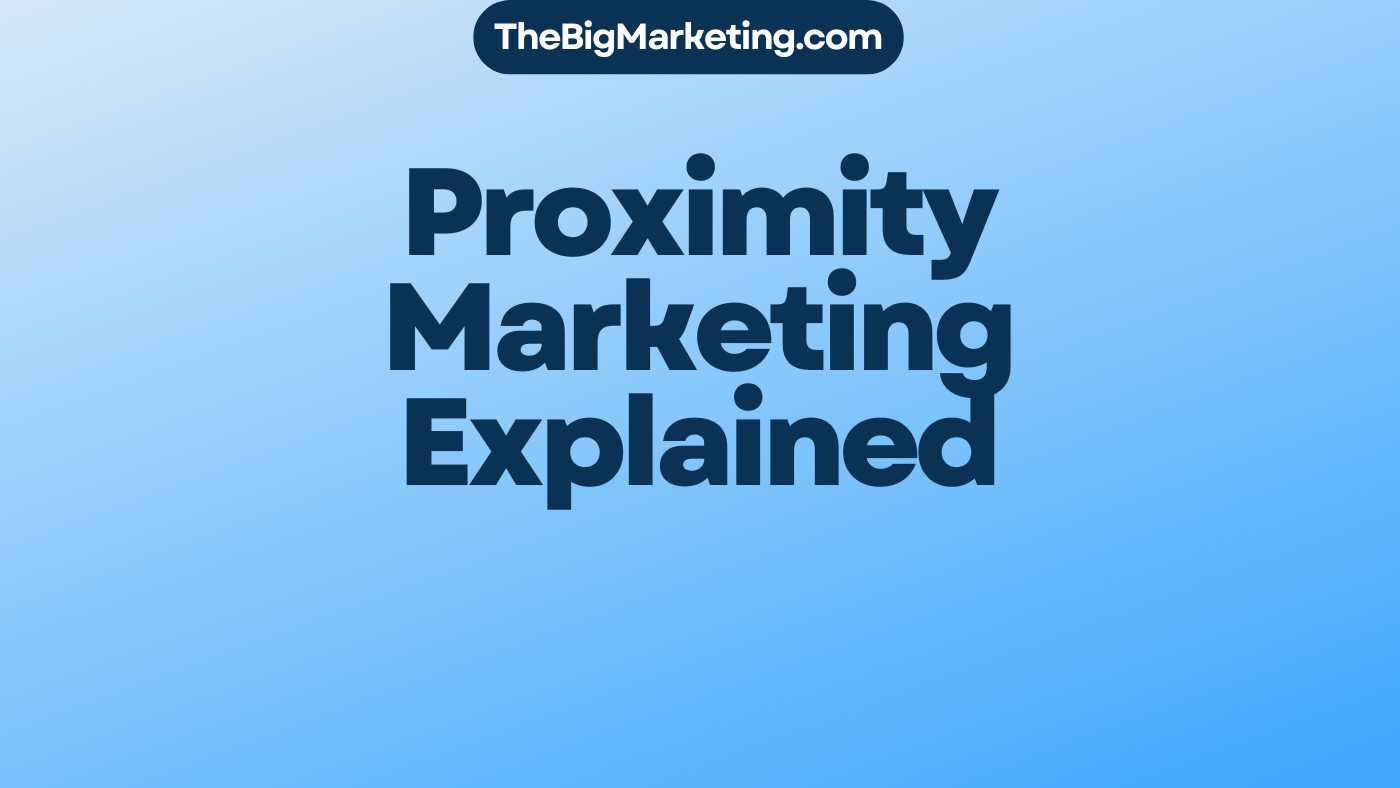Affiliate marketing and digital marketing are two essential strategies for establishing a successful online business. While both have their differences and benefits, understanding the nuances of each can help drive your online success. In this guide, we will explore the differences between affiliate marketing and digital marketing, as well as delve into the various strategies and techniques involved in each.
Key Takeaways:
- Affiliate marketing and digital marketing are two distinct strategies for online business success
- Understanding the differences between affiliate and digital marketing is crucial for effective implementation
- Affiliate marketing involves promoting other businesses’ products for a commission
- Digital marketing encompasses various techniques such as SEO, social media marketing, and PPC ads
- Both strategies offer unique benefits and can be used together to maximize online success
What is Digital Marketing?
Digital marketing refers to the promotion and sale of products and services through various online channels. It encompasses techniques such as search engine optimization (SEO), social media marketing, and PPC ads.
SEO focuses on increasing a website’s visibility in search engine results pages (SERPs), ensuring it ranks higher and attracts organic traffic. By optimizing website content, meta tags, and backlinks, businesses can improve their search engine rankings and drive targeted audiences to their sites.
Social media marketing is another important aspect of digital marketing, leveraging platforms like Facebook and Instagram to engage with audiences and increase web traffic. By creating compelling content, running targeted ads, and engaging with followers, businesses can build brand awareness and drive conversions.
PPC ads, also known as pay-per-click ads, allow advertisers to promote their content and pay only when someone clicks on their ads. This method offers businesses a highly targeted and measurable approach to drive traffic and generate leads.
Overall, digital marketing encompasses a range of strategies and techniques that leverage online channels to reach and engage with audiences effectively.
What is Affiliate Marketing?
Affiliate marketing is a popular online marketing strategy that involves promoting other businesses’ products and earning a commission for each sale made through your affiliate link. As an affiliate marketer, you act as a middleman between the product owner and the customer, driving traffic and sales through your promotional efforts.
Affiliate marketers, also known as affiliates, promote products to their audience through various channels such as blogs, social media, email marketing, and more. When a customer makes a purchase using the affiliate’s unique tracking link, the affiliate earns a percentage of the revenue generated, known as a commission.
The product owner is the individual or company responsible for creating and selling the product. They partner with affiliates to increase their product’s reach and sales. By leveraging the audience and marketing efforts of affiliates, product owners can expand their customer base and boost their revenue.
Affiliate marketing offers a win-win situation for all parties involved. Affiliates benefit from earning passive income by promoting products they believe in, while product owners can tap into the expertise and reach of affiliates to scale their business.
To illustrate the relationship between affiliates, customers, and product owners, here is an example:
| Affiliate Marketing Example |
|---|
|
Difference Between Affiliate Marketing and Digital Marketing
When it comes to online marketing strategies, there are several key differences between affiliate marketing and digital marketing. Understanding these distinctions can help businesses determine which approach aligns best with their goals and target audience. Let’s explore the dissimilarities:
- Reach: Digital marketing utilizes various strategies to target a wide audience across different devices, including desktop and mobile. On the other hand, affiliate marketing focuses on digital advertising with a primary emphasis on commissions. Affiliates promote products or services to their specific audience, thus narrowing the reach compared to digital marketing.
- Competencies: Digital marketing requires a diverse skill set, including expertise in search engine optimization (SEO), social media management, and analytical tools. Conversely, affiliate marketing relies heavily on relationship-building and persuasion skills. Building trust with the audience and convincing them to make a purchase through your affiliate link are crucial competencies in the affiliate marketing realm.
- Ownership: The ownership aspect differs significantly between the two marketing approaches. In digital marketing, businesses have complete ownership and control over their products, services, and marketing channels. They can choose and manage multiple marketing channels simultaneously. On the contrary, affiliate marketing involves promoting other people’s products, and thus the ownership lies with the product owners.
- Components: The components of digital marketing encompass various variables, including SEO, content marketing, social media, paid advertising, and more. Digital marketing strategies often involve combining multiple components to achieve desired outcomes. In contrast, affiliate marketing revolves around three main components: the affiliate marketer, the customer, and the product owner.
Overall, recognizing the differences between affiliate marketing and digital marketing is crucial in deciding the most suitable marketing strategy for your business. While digital marketing offers broader reach and requires diverse competencies, affiliate marketing thrives on relationship-building and focuses on promoting other people’s products. Consider your goals, resources, and target audience to make an informed choice.
Components of Digital Marketing
In the world of digital marketing, there are multiple components that come together to create effective and impactful strategies. These components include:
- Search Engine Optimization (SEO): SEO is a crucial component of digital marketing that focuses on improving a website’s visibility in search engine results pages. By employing various strategies and techniques, such as keyword optimization and website structure improvements, SEO helps attract targeted audiences and increase organic traffic.
- Social Media Marketing: Social media platforms like Facebook, Twitter, and Instagram offer immense potential for businesses to connect with their target audience, build brand awareness, and drive web traffic. Through engaging content, strategic advertising campaigns, and audience targeting, social media marketing can effectively increase brand visibility and grow a loyal customer base.
- Pay-Per-Click (PPC) Ads: PPC ads provide businesses with a powerful way to promote their digital content and drive traffic to specific websites or landing pages. Platforms like Google Ads and Facebook Ads allow advertisers to display ads to their target audience and pay only when someone clicks on their ads. PPC ads offer precise targeting options, budget control, and real-time performance tracking.
Combining these components enables businesses to create comprehensive digital marketing strategies that encompass various online channels and tactics. The integration of SEO, social media marketing, and PPC ads maximizes the reach, visibility, and impact of digital marketing campaigns, resulting in increased brand awareness, web traffic, and conversions.
It’s essential for businesses to understand and leverage these components effectively to stay competitive in today’s digital landscape.
Components of Affiliate Marketing
Affiliate marketing operates on a system with three main components: the affiliate marketer, the customer, and the product owner. Let’s take a closer look at each of these components:
Affiliate Marketer
The affiliate marketer is an individual or a business that promotes products or services on behalf of the product owner. They act as intermediaries between the product owner and the customer, using various marketing techniques to drive traffic and generate sales. Affiliate marketers often have a specific niche or target audience they cater to, allowing them to effectively promote products that are relevant to their audience’s interests.
Customer
The customer is the end user who purchases the product or service through the affiliate marketer’s marketing efforts. They may come across the product through the affiliate’s website, blog, social media accounts, email campaigns, or other promotional channels. Customers are typically attracted to affiliate marketing because they trust the recommendations and reviews provided by the affiliate marketer, which helps them make informed purchasing decisions.
Product Owner
The product owner is the individual or company that creates and sells the product or service. They have the responsibility of developing high-quality products and providing the necessary customer support to ensure customer satisfaction. The product owner benefits from affiliate marketing by leveraging the affiliate marketer’s promotional efforts to reach a wider audience and increase sales.
These components work together harmoniously to create a successful affiliate marketing partnership. The product owner gains exposure, the affiliate marketer earns a commission for each sale, and the customer discovers valuable products or services that fulfill their needs.
| Component | Description |
|---|---|
| Affiliate Marketer | Promotes products or services on behalf of the product owner |
| Customer | End user who purchases the product or service through the affiliate marketer |
| Product Owner | Individual or company that creates and sells the product or service |
Benefits of Digital Marketing
Digital marketing offers several benefits for businesses. By optimizing websites for search engines and utilizing various digital channels, businesses can increase their visibility and attract a targeted audience. This increased visibility leads to enhanced brand recognition and customer engagement, ultimately driving sales and business growth.
One of the key advantages of digital marketing is the ability to reach a wide range of customers through different online platforms. With the right strategies in place, businesses can connect with their target audience on social media, search engines, and other digital channels, ensuring their message reaches the right people at the right time.
Furthermore, digital marketing provides valuable data and analytics that help businesses measure the effectiveness of their marketing campaigns. By analyzing this data, businesses can make informed decisions, refine their strategies, and optimize their marketing efforts to achieve better results.
The Benefits of Digital Marketing:
- Increased visibility: By optimizing websites and utilizing digital channels, businesses can reach a larger audience and increase their online visibility.
- Targeted audience: With digital marketing, businesses can target specific demographics and engage with their ideal customers, leading to higher conversion rates.
- Enhanced brand recognition: By consistently promoting their brand online, businesses can improve brand recognition and establish themselves as industry leaders.
- Customer engagement: Digital marketing enables businesses to interact with their customers through social media, email marketing, and other channels, fostering stronger relationships and increased customer loyalty.
- Data and analytics: Digital marketing provides valuable insights into customer behavior, campaign performance, and ROI, allowing businesses to make data-driven decisions and optimize their marketing strategies.
Benefits of Affiliate Marketing
Affiliate marketing offers a range of benefits that make it an attractive option for individuals looking to generate income online. Let’s explore some of the key advantages:
1. Passive Income
One of the major benefits of affiliate marketing is the potential to earn passive income. Unlike traditional jobs where you exchange time for money, affiliate marketers can generate income even while they sleep. Once you’ve set up your affiliate links and content, you can continue to earn commissions on sales without actively promoting the products.
2. Low Startup Costs
Affiliate marketing provides an accessible business model with low startup costs. You don’t need to create your own products or invest in inventory. Instead, you can join affiliate programs and start promoting existing products right away. With minimal financial investment, you can begin your affiliate marketing journey and potentially earn a significant income.
3. High Conversion Rate
Affiliate marketers have the advantage of promoting products to a targeted audience. By selecting products relevant to your niche, you can attract an audience that is genuinely interested in what you have to offer. Consequently, this increases the likelihood of conversion, resulting in higher commission earnings.
4. Opportunity to Build a Loyal Customer Base
Through your affiliate marketing efforts, you have the opportunity to cultivate a loyal customer base. By consistently recommending high-quality products and providing value to your audience, you can establish trust and credibility. This fosters long-term relationships with customers who are more likely to make repeat purchases through your affiliate links.
Differences Between Digital Marketing and Affiliate Marketing
When it comes to online marketing, there are key differences between digital marketing and affiliate marketing. These differences revolve around ownership, emphasis, and cost.
Ownership
In digital marketing, businesses have ownership and control over both the product and the marketing channels. They create and sell their own products, giving them full control of the brand and customer experience. On the other hand, affiliate marketing involves promoting other people’s products. As an affiliate marketer, you act as a middleman, promoting products and earning commissions for each sale. However, you do not have ownership or control over the product itself.
Emphasis
Digital marketing places emphasis on skills such as search engine optimization (SEO) and data analysis. Businesses utilize SEO techniques to improve their website’s visibility in search engine results and analyze data to measure the effectiveness of their campaigns. In contrast, affiliate marketing focuses on relationship-building and persuasion. As an affiliate marketer, your success depends on your ability to build trust with your audience and persuade them to make a purchase through your affiliate link.
Cost
One of the significant advantages of affiliate marketing is that it typically does not involve additional costs for the consumer. Affiliates earn commissions from the product owner when a sale is made, without the customer having to pay extra. On the other hand, digital marketing can involve additional costs for product creation and advertising. Businesses need to invest in creating their own products or services and allocate budgets for various digital marketing campaigns.
While both digital marketing and affiliate marketing are effective strategies, understanding these differences can help you determine which approach aligns better with your goals and resources.
| Digital Marketing | Affiliate Marketing |
|---|---|
| Ownership and control over products and marketing channels | Promotion of other people’s products |
| Emphasis on skills like SEO and data analysis | Focus on relationship-building and persuasion |
| Additional costs for product creation and advertising | No extra costs for the consumer |
Conclusion
In conclusion, digital marketing and affiliate marketing are both valuable strategies for businesses seeking online success. Digital marketing offers a wide range of components and techniques to reach a broad audience and increase brand visibility. It encompasses SEO, social media marketing, and PPC ads, allowing businesses to target specific demographics and analyze campaign effectiveness.
On the other hand, affiliate marketing provides individuals with the opportunity to earn passive income by promoting products from other businesses. Affiliates can leverage their existing platforms and audiences to drive sales through their unique affiliate links, earning a commission for each successful referral. This model allows for low startup costs and a focus on relationship-building, ultimately leading to customer loyalty.
Understanding the differences and benefits of digital marketing and affiliate marketing is essential for entrepreneurs looking to establish a successful online presence. By analyzing their business goals, target audience, and available resources, entrepreneurs can make informed decisions on which strategy best aligns with their objectives. Whether it’s leveraging digital marketing techniques to reach a wider audience or monetizing their platform through affiliate marketing, businesses can utilize these strategies to drive online success.
FAQ
What is the difference between affiliate marketing and digital marketing?
Affiliate marketing involves promoting other businesses’ products and earning a commission for each sale, while digital marketing refers to the promotion and sale of products and services through various online channels.
What is digital marketing?
Digital marketing encompasses techniques such as SEO, social media marketing, and PPC ads to promote and sell products and services through online channels.
What is affiliate marketing?
Affiliate marketing involves promoting other businesses’ products and earning a commission for each sale made through your affiliate link.
What are the components of digital marketing?
The components of digital marketing include SEO, social media marketing, and PPC ads.
What are the components of affiliate marketing?
The components of affiliate marketing include the affiliate marketer, the customer, and the product owner.
What are the benefits of digital marketing?
Digital marketing offers increased visibility, the ability to reach a targeted audience, and valuable data and analytics to assess campaign effectiveness.
What are the benefits of affiliate marketing?
Affiliate marketing offers the potential for passive income, low startup costs, high conversion rates, and the opportunity to build a loyal customer base.
What are the differences between digital marketing and affiliate marketing?
Digital marketing involves product ownership and control over marketing channels, while affiliate marketing involves promoting other people’s products. Digital marketing emphasizes skills such as SEO and data analysis, while affiliate marketing focuses on relationship-building and persuasion. Additionally, digital marketing can involve additional costs for product creation and advertising, while affiliate marketing typically does not add extra costs for the consumer.



